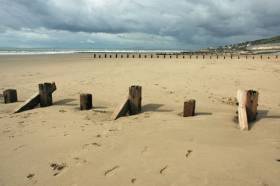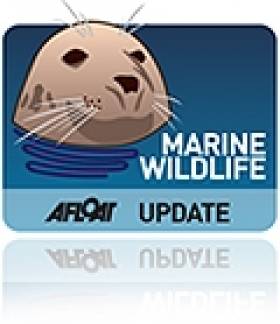Displaying items by tag: Cardigan Bay
#Missing - BBC News reports that the search has resumed for two teenagers missing in the Irish Sea off north-west Wales since yesterday afternoon (Sunday 7 August).
The two boys, ages 14 and 15, had got into difficulty while swimming at Barmouth Beach in Cardigan Bay and were separated from their group, comprising members of the Somali and Yemeni communities in Birmingham.
It's understood one member of the group attempted a rescue but was unsuccessful.
In a separate incident, HM Coastguard and RNLI lifeboats from Cardigan and New Quay launched to reports that a man had been swept off rocks at Mwnt on the southern side of Cardigan Bay.
It was reported that two men had been walking when they were cut off by the tide and one of them fell into the sea from rocks.
Cardigan Bay's Dolphins Take Winter Breaks in the Isle of Man
#MARINE WILDLIFE - The famous dolphins of Cardigan Bay have been found to cross the Irish Sea to spend their winter holidays in the Isle of Man, WalesOnline reports.
New evidence uncovered by researchers at the Cardigan Bay Marine Wildlife Centre (CBMWC) confirms that dolphins from the New Quay area on the Welsh coastline have been photographed over the winter hundreds of miles north by conservationists in Douglas.
As many as eight vacationing cetaceans have been identified by matching markings on their dorsal fins, with one being a regular visitor since 2005.
“We’re really excited about this because it confirms how far the Cardigan Bay dolphins roam in the winter months when we see fewer of them at New Quay – knowledge we need to have if we’re to protect them successfully," said CBMWC science officer Sarah Perry.
Cardigan Bay is home to Europe’s largest population of bottlenose dolphins and is one of the last remaining places in the UK where the species thrives.
WalesOnline has more on the story HERE.































































